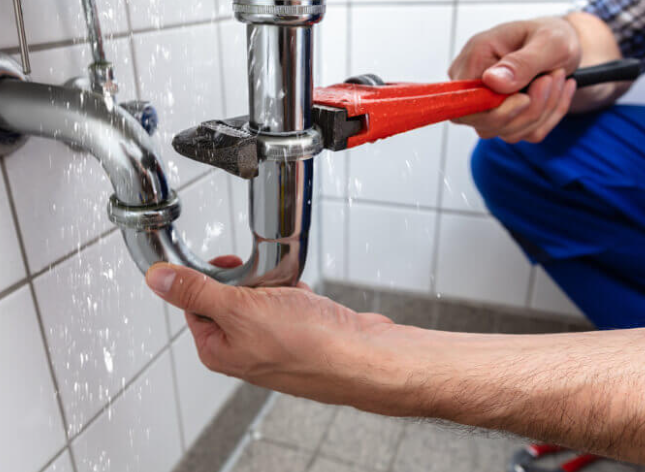5 Preparation Tips When You Need a Plumber
We partnered with a home maintenance company for this post. The opinions in the post are honest. All reviews and opinions expressed in this post are based on our personal views. We are excited because we know you will love it
Home plumbing issues are often the unseen hazards that assert themselves at the most inconvenient times. Whether it's a leaking faucet, a clogged drain, or a mysterious damp patch on the ceiling, the services of a good plumber can be the difference between a small inconvenience and a home maintenance disaster. However, finding a reliable plumber and preparing for their visit isn’t as straightforward as it sounds. Good preparation can speed up the process and help keep the cost down. Here are five essential tips to help you get the most out of your plumber's visit.
Know When to DIY and When to Reach out
The first step in preparing for a plumbing job is to assess whether it's something you can handle yourself. While some issues, like a simple clogged drain, can often be resolved with a plunger or some household chemicals, more significant problems such as a burst pipe or a water heater malfunction will likely require professional help.
To make this decision, you need to consider a few things:
Your skill level and comfort with plumbing repairs.
The potential severity of the problem and the risks associated with attempting a DIY fix.
The cost of tools and materials you might need versus the cost of a plumber's visit.
While DIY can save you money, it's essential to be honest about your capabilities. A failed DIY repair can make things worse and more costly to fix in the long run. When in doubt, it's best to call a professional.
Research Local Plumbers and Read Reviews
Not all plumbing services are created equal. A little research can go a long way in finding a reputable, skilled plumber. Start by asking for recommendations from friends and family. Word-of-mouth referrals can be the most reliable source of information when it comes to service professionals.
Online reviews are another helpful tool in vetting potential plumbers. Look for consistently good reviews and any trends in the complaints. Government or industry association websites may also provide lists of licensed and insured professionals in your area.
Once you've gathered a list of potential plumbers, call them to ask about their services, pricing, and availability. Ask about their experience with your specific issue and whether they offer any guarantees on their work. Narrow your list down to a few you feel comfortable with and schedule in-person estimates if time allows.
Clear the Area and Communicate All Relevant Details
To make the plumber's job easier and to allow for an accurate assessment of the problem, it's crucial to clear the area around the issue. Move any furniture, appliances, or personal items that might be in the way. This not only ensures the plumber can get to work right away but also protects your belongings from potential damage.
Clarity in communication is also key. When you contact the plumber, be as detailed as possible about the problem. Explain when the issue started, any previous attempts at repair, and any fixtures or appliances affected. The more information you can provide, the better prepared the plumber will be to address the problem on the first visit.
Estimate the Issue Scale
Do your best to estimate the scale of your plumbing issue. If you have a leak, for example, determine the rate of water flow and whether you can shut off the water supply to that fixture. If it's a drain problem, note if it's a single drain or if multiple fixtures are affected.
This information can help you and your plumber to manage the situation effectively. For a minor leak, you might be able to turn off the water supply to that fixture and wait for the plumber without further damage. In a more urgent case like a burst pipe, turning off your home's main water valve and calling emergency services could be the best course of action.
Ask About the Repair Method and Future Prevention Steps
When the plumber arrives, communicate from the start. Ask about the method they intend to use for the repair and how long it might take. Good plumbers will be happy to walk you through the process and answer any questions you might have. Understanding the repair can also help you identify anything you can do to prevent similar issues in the future.
For instance, if the problem was due to using your garbage disposal incorrectly, the plumber might give you tips on proper use. If the problem is more significant, they might recommend regular maintenance for certain systems in your home. An open dialogue with your plumber can provide you with valuable knowledge that can save you hassle in the long run.
By following these tips, you can ensure that your plumber's visit is as efficient and effective as possible. Take the time to do your homework, communicate clearly, and be prepared to listen and learn. Whether it's a quick fix or a time-consuming replacement, a little preparation can make the process much smoother and leave you with the peace of mind that comes with a job well done.


